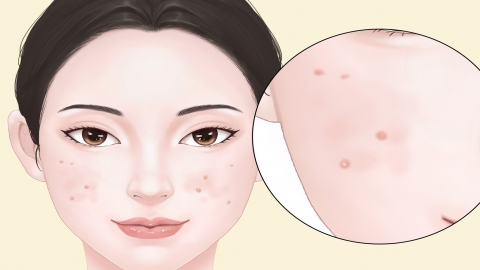How to treat cystic acne
Cystic acne may be caused by hormonal abnormalities, abnormal follicular keratinization, overactive sebaceous glands, endocrine disorders, abnormal immune responses, and can be improved according to different situations. It is recommended to visit a hospital promptly and receive treatment under a doctor's guidance.

1. Hormonal abnormalities: Hormonal changes during puberty may lead to cystic acne and changes in skin condition. It is recommended to maintain good lifestyle habits, such as balanced diet, adequate sleep, and moderate exercise.
2. Abnormal follicular keratinization: Excessive keratinization of the follicle wall leads to blocked follicle openings, causing inflammation and eventually developing into cystic acne. Regular deep cleansing treatments, such as salicylic acid peels, can help remove blockages.
3. Overactive sebaceous glands: Excessive sebum production by the sebaceous glands blocks the hair follicles, creating an environment conducive to bacterial growth, triggering inflammatory reactions and forming cystic acne. It is recommended to use medications as directed by a physician, such as isotretinoin soft capsules, doxycycline hydrochloride tablets, benzoyl peroxide gel, to improve the condition.
4. Endocrine disorders: Elevated androgen levels or decreased estrogen levels lead to increased sebaceous gland activity. It is recommended to regulate hormone levels using medications such as Modified Xiaoyao Pills, Qizhi Xiangfu Pills, and Wujibai Feng Pills, under a doctor's guidance.
5. Abnormal immune response: An excessive immune response to Propionibacterium acnes leads to exacerbated inflammation, resulting in cystic acne. It is recommended to use medications such as ibuprofen tablets, indomethacin tablets, and triamcinolone acetonide injection, as directed by a physician, to alleviate discomfort.
In daily life, avoid using irritating cosmetics and refrain from squeezing the affected areas by hand to prevent worsening of the condition.







